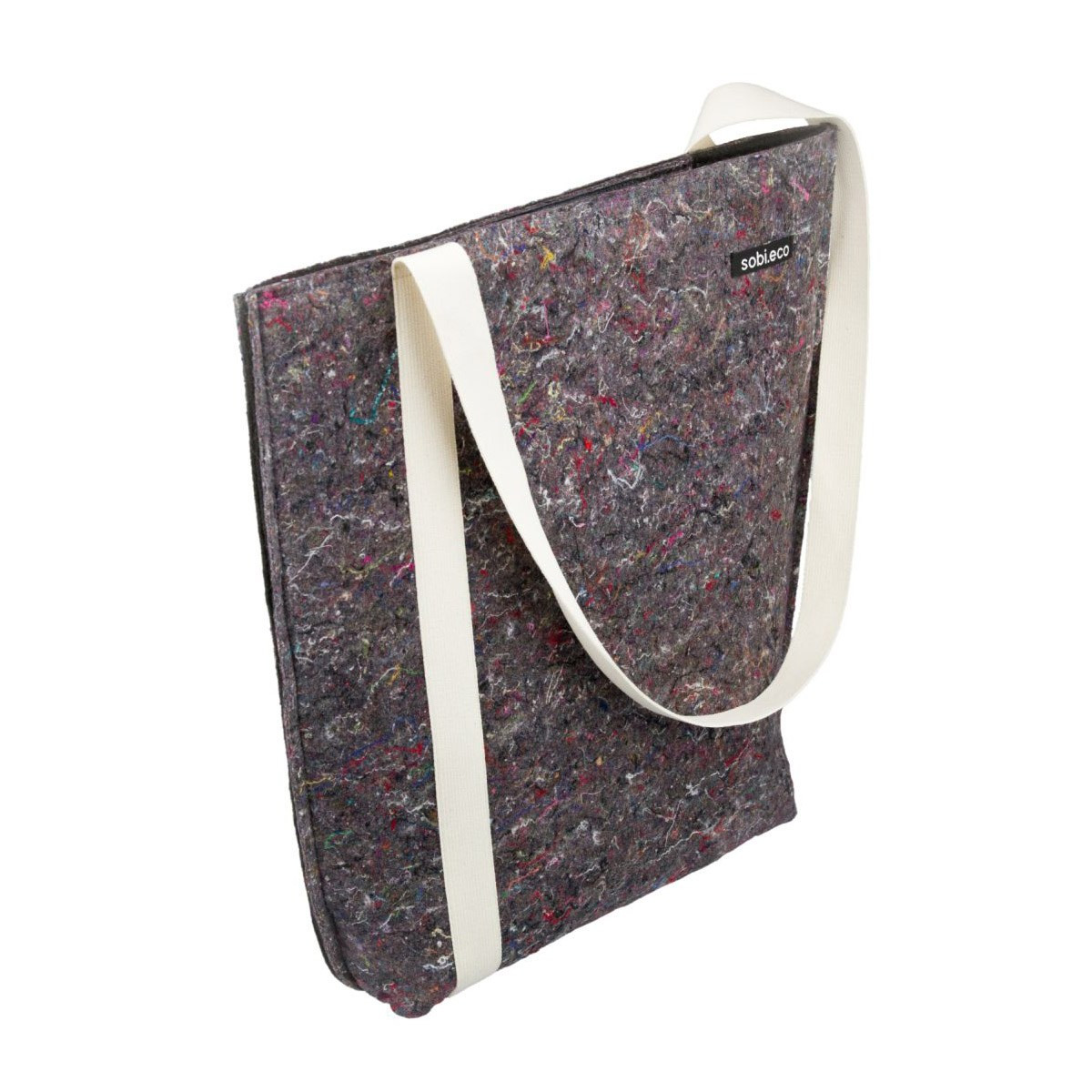
SHOULDER BAG

Recycled Textile Waste Product
sobi.eco aims to create innovative projects with social and ecological dimension. It has been founded in 2017 as a CSO gathering experts from different fields in order to deliver well-designed products from recycled materials and green jobs to vulnerable groups. The role of sobi is in innovative design solutions, creating unique partnerships among NGOs and the business sector, maintain the quality of all products and sustainable activities, through marketing and sales raising social and ecological awareness in the society. This approach is barely applied in the region, where sobi started to operate. We have set up a team of professionals from different areas. The founders of sobi are Tomas Horvath (Project Manager and PR Specialist, awarded for solutions within the SDGs), Alena Horvathova (Project Management and Marketing of Commercial and Development projects) and Martin Malina (Website Developer and Graphic Designer, holds award for creative solutions).
Our societies adore fast life and consume tremendous amounts of everything. The fashion industry is the second largest industrial polluter and accounts for 10% of global carbon emissions. Purchasing garments has become an integral part of our lives and globally, we consume 80 billion articles of clothing per year, purchasing 400 percent more clothing than we did just 20 years ago. Whether we want to express our individuality or shield ourselves from Mother Nature, all of us are consumers in the fashion industry. Thanks to advances in technology the consumption of garments is easier and faster than ever before. But many of us struggle with what to do when our clothes have reached the end of their life cycle. The average lifetime of a piece of clothing is only about 3 years. Then it becomes either not wearable, not fashionable, loses its colour or we can find many other reasons why not to wear it any more. Unwanted garments are often passed on to friends and family, donated to charities and NGOs, or are returned to retailers as part of take back programs. However, only 0.1% of these donated or returned garments are recycled into new textile fiber. Most of these clothes will end up in landfills where they pollute and create an unsanitary environment. While up to 95% of those textiles could be recycled.
The pilot project focuses on transforming old clothes and plastics into recycled products such as notebook sleeves or reusable bottle bags, all made from non-woven 100% recycled material.
sobi.eco has received awards and was presented at different places in the world during events focused on innovative sustainable solutions. The brand was listed among 197 best ideas in the UNLEASH Solution catalogue. The pilot project has become one of the best in the international competition OpenMaker and received a financial award. sobi.eco has been selected for the Sustainable Brands Innovation Open quarterfinals, SBIO, as one of the Top 40 ideas promoting sustainable branding in April 2018. Awareness and educational activities within the brand sobi.eco were presented during the 8th UNAOC Global Forum at the United Nations Headquarters in New York.
The brand has three dimensions:
Ecological – transforming potential waste into unique products
Social – delivering green jobs to vulnerable groups
Educational – enlightening sustainable solutions to students and the wide public
Recycled Textile Waste Product
Slovakia
Uhliska 2, 83107 , Bratislava,
Phoebe Smith
Show more ▼

TedX Bratislava
Glad to have you as an event partner!
Show more ▼

Ethical
Show more ▼

Daniela Daubnerová (Business Mentor)
Thank you for the special Christmas edition! I love your idea.
Show more ▼

Director
[email protected]Tomas Horvath is the Founder and Director of an ethical and eco-friendly brand sobi.eco, which focuses on recycling textile and plastic waste and create unique design products in sheltered and social workshops. Tomas is also Deputy Director of the Health Initiatives Association with health, educational and social projects in Uganda. He links national health programs to migrants in Slovakia as the NGO Guarantor at the Ministry of Health of the Slovak Republic. He has been a Consultant to the Deputy Prime Minister's Office for Investments and Informatization of the Slovak Republic during the preparation of the National Plan on Agenda 2030. He is the UNAOC, UNLEASH and Yunus&Youth Alumnus and member of the SDSN Youth.
Show more ▼